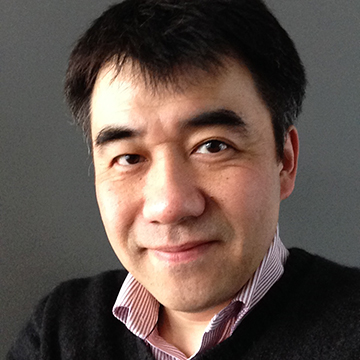Qualitycast North
Qualitycast North – a PQI podcast hosted by NHPQI Physician Lead Dr. Shyr Chui.

The Qualitycast North podcast highlights Northern Physicians, patient partners, and healthcare leaders who are leading the way in a culture shift for quality improvement and supporting the goals of the quadruple aim. Episodes are released every 3 weeks.
In an interview format, host Dr. Shyr Chui, with support from co-host Lee Cameron, features guests from all over Northern BC to talk about their lives, work and how they are improving healthcare.
Listeners will hear about innovative quality improvement projects that are overcoming some of the challenges encountered by patients and their healthcare providers in the Northern environment and will get an opportunity to be inspired by the unique benefits of living and working in Northern communities.
Current Episode
S05 E07 | Released 2026-02-09
The Success Story of Pathways featuring Drs. Kathleen Ross and Tracy Monk
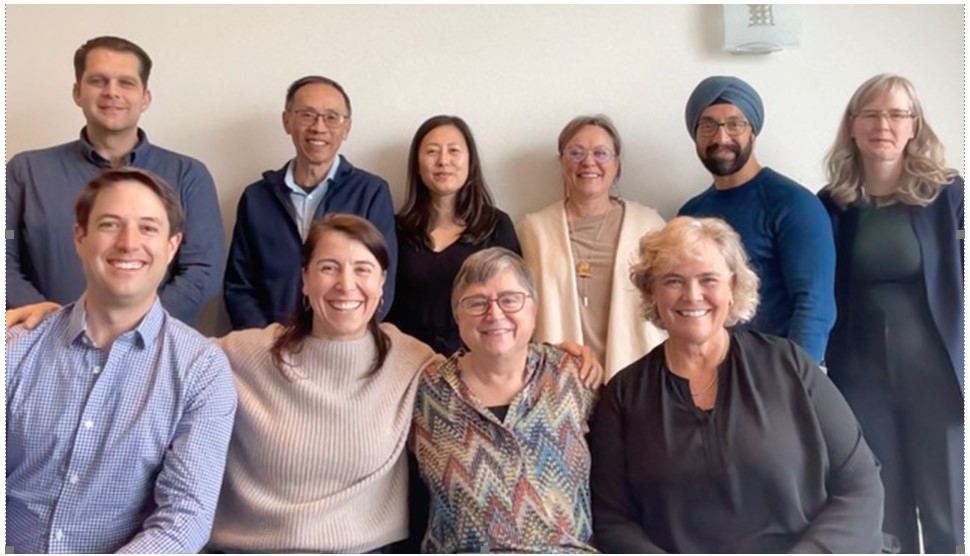
In our current technological age, the most successful information platforms are those that provide exactly the information the user needs quickly and accurately. This is the underlying premise behind British Columbia’s hugely successful medical information platform Pathways. In today’s episode we interview its two eminent founders Dr. Kathleen Ross and Dr. Tracy Monk, about its early origin story and how it developed into the universal healthcare provider directory and an amazing, multifunctional, timesaving and educational resource in its current form. We hear how their strong guiding principles drove development of Pathways’ form and function, how listening to users led to some of its best features and how quality improvement through innovation is not only rewarding but also fun.
Pathways Links:
To register go to www.pathwaysbc.ca and select "request access" at lower right
Info page
https://pathwaysbc.ca/info
Backgrounder
https://pathwaysbc.ca/ci/8684
Earlier Episodes
S05 E06 | Released 2026-01-23
Building Safer Patient Care featuring Christina Krause from Health Quality BC
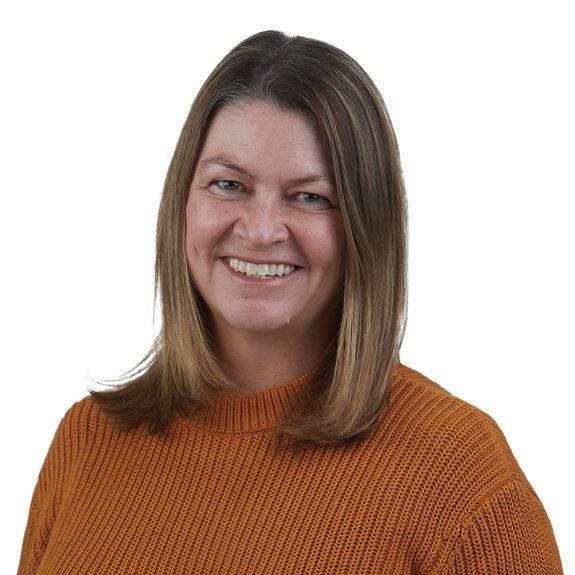
In this gem of an interview, we chat with Christina Krause, the CEO of Health Quality BC about a whole range of topics around patient safety from the role of Provincial quality and safety organizations and the new BC Patient Safety Strategy to what’s changed in our understanding of safer patient care. Through personal stories and experiences, Christina shares valuable insights into safer care through listening to patients’ and families, the importance of psychological safety, and why everyone should just take just a little more time to understand one another’s viewpoints. Listen and let Christina’s infectious enthusiasm bring you to a new understanding of safer patient care.
Links:
S05 E05 | Released 2026-01-09
Reducing hospital admissions for mental health crises by bridging hospital and community care featuring Alanna Summers, Jennifer Sandberg and Jane Dolan
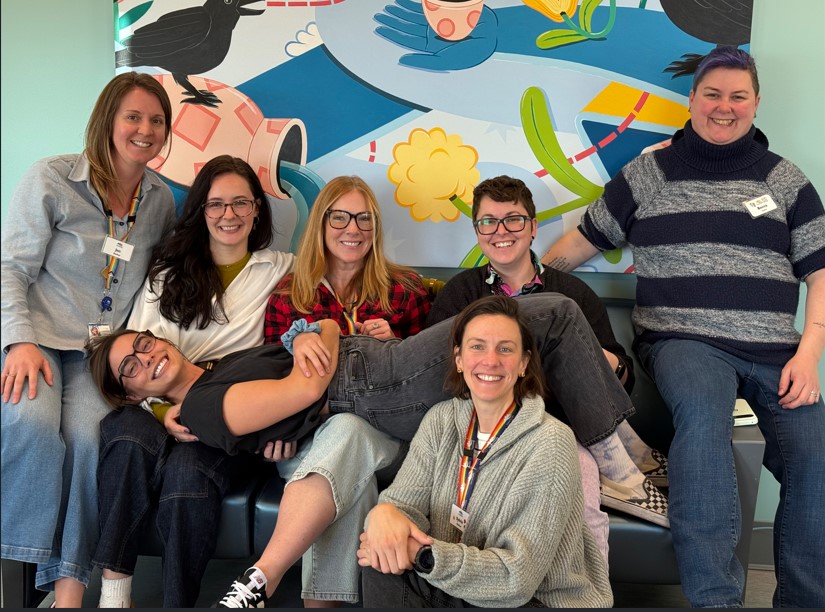
In this episode we feature another award-winning, quality improvement project this time based in Victoria, Vancouver Island. Our guests are Alanna Summers, Program Manager and a registered psychiatric nurse, Jennifer Sandburg, Team Lead occupational therapist, and Jane Dolan, MHSU Clinical recreational therapist, from the South Island Mental Health and Substance Use team. Starting with the gap in care they first identified, they take us through how they developed their cost effective and successful Bridging Care program for patients in mental health crisis. This program not only provides effective, patient-centered care but has also reduced hospital admissions and inpatient length of stay. We hear how local healthcare leadership had the foresight to support the original vision, powerful testimonials from some of the program’s patients, and how developing the program itself brought positive benefits to the provider team.
Links:
Counselling, Treatment & Recovery | Island Health
Mailing address:
Bridging Care Program
Eric Martin Pavilion
6th floor, 2334 Trent St
Victoria, BC
V8R 4Z3
S05 E04 | Released 2025-12-29
Taking a Bite Out of Health Inequity featuring Dr. Diana Bark and Lara Frederick
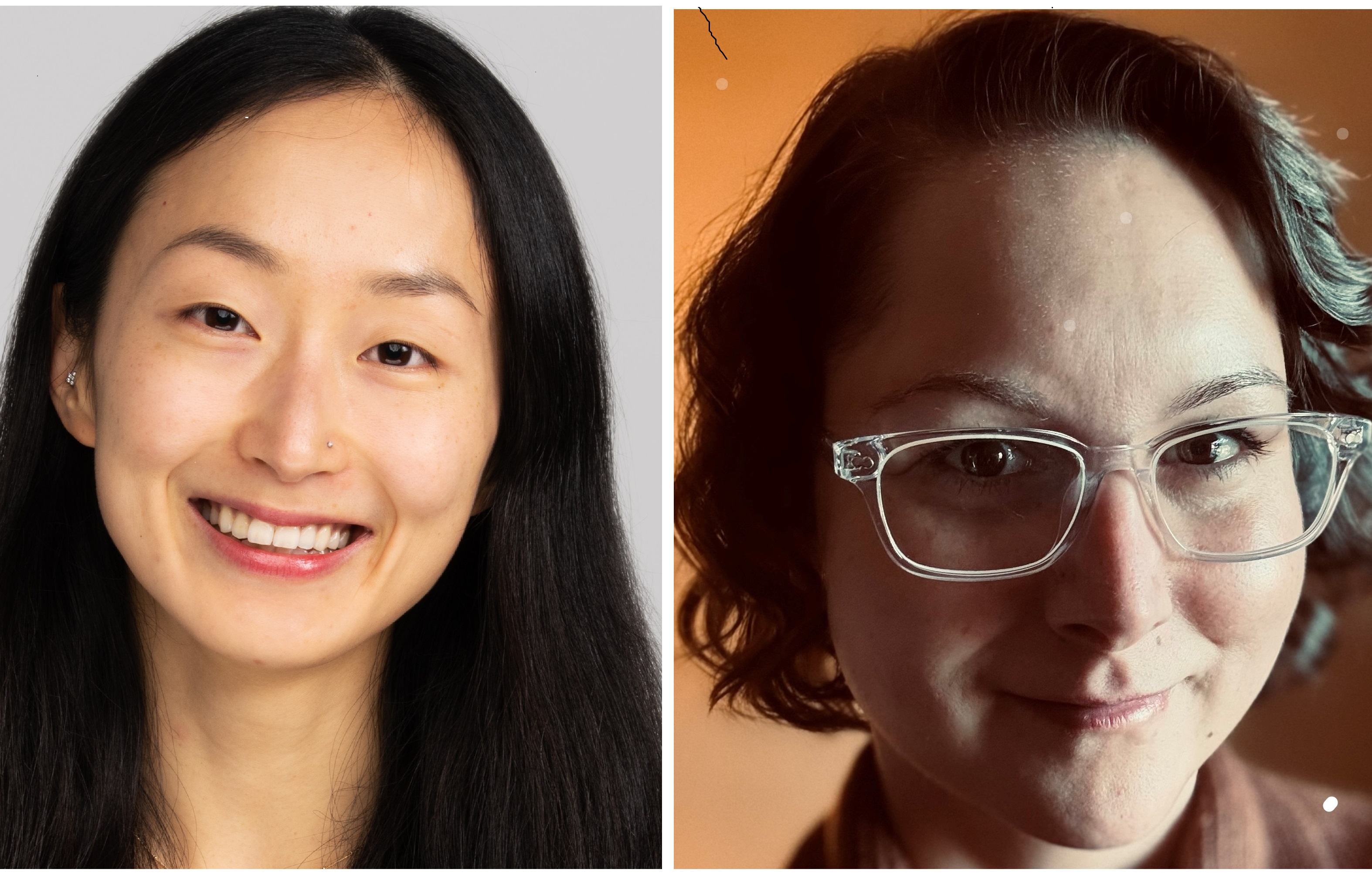
In this episode, we head upstream in our health system with this podcast’s first ever guests form the public health sector. Northern Health’s Medical Health Officer Dr. Diana Bark, and Director of Public Health, Lara Frederick take us through their QI work identifying, analyzing, and addressing a gap in dental health screening and dental caries prevention in pre-kindergarten age children in Northeast BC. We learn how QI methodology can be applied to complex problems in public health and how, through enhanced community engagement, their team provided valuable, preventative, dental care and improved health equity at the same time.
Links:
S05 E03 | Released 2025-12-13
Optimizing Visiting Specialist Clinics and Equitable Care featuring Dr. Angela How
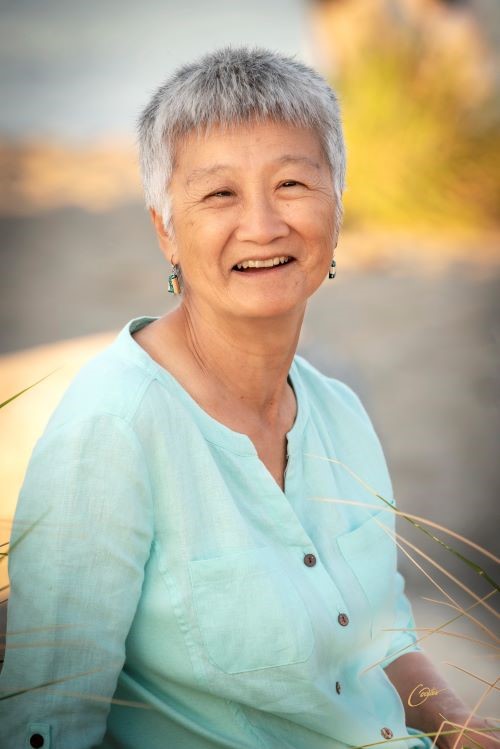
Visiting specialist clinics are a lifeline for patients with chronic disease in rural and remote communities across the North. They save patients travel time and costs and also provide care in context of their own local communities and available supports. But patient non-attendance at these clinics can negatively impact the quality of their longitudinal care leading to increased morbidity. In this episode, Dr. Angela How takes us through her quality improvement work based at her rural visiting specialist rheumatology clinic in Hazelton improving patient attendance through a culturally safe approach incorporating motivational interviewing techniques. At the same time, we hear how her 28 year commitment to her Hazelton clinic has been both personally rewarding and helped to build local trust by providing equitable patient care.
S05 E02 | Released 2025-12-01
With Great Data Comes Great Responsibility featuring Dr. Cole Stanley and Gayle Grout from Health Data Coalition
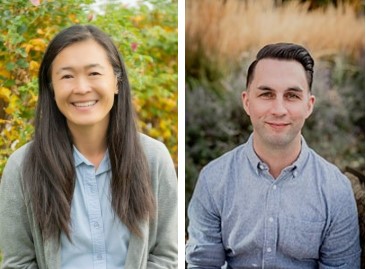
Our topic in this episode is the power and potential of good data for improving patient care. In a broad ranging interview with our guests Dr. Cole Stanley and Gayle Grout from Health Data Coalition (HDC), we hear about the origins and goals of HDC and how the aggregation of primary care electronic medical record data can provide Primary Care providers reassurance and drive improvements in care. We talk about the importance of feedback loops, the benefits and dangers of comparison and how such data can support a whole system quality approach. HDC is a great example of a how a non-profit, collaborative, physician-led and governed data coalition can drive better patient care whilst maintaining privacy.
Health Data Coalition – Better Information. Better Care. Better Patient Outcomes.
HDC Bright Spots: Bright Spots – Health Data Coalition
HDC MD's Corner: MD’s Corner – Health Data Coalition
LinkedIn: Health Data Coalition of BC | LinkedIn
S05 E01 | Released 2025-11-24
Goodbye Season 4, Hello Season 5!
As season 4 comes to and end and we enter our 5th year of the podcast with season 5, Shyr and Lee reflect on their favourite highlights from last season. With twice as many episodes as previous seasons, there was a lot to choose from and of course all our guests left an indelible impression. What can we look forward to in the season ahead? More great Quality Improvement projects, high profile guests and maybe even one or two surprises. Don’t want to miss an episode? Subscribe to our channel.
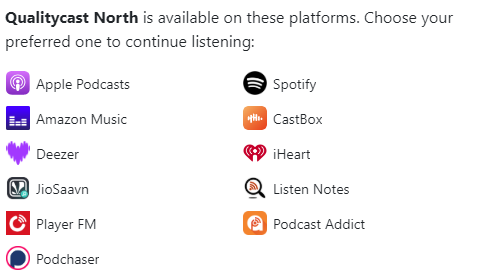
S04 E20 | Released 2025-10-24
What the Mayo Clinic Gets Right featuring Drs. Kalah Blackstock and Dr. John Hwang
From a healthcare quality perspective, you can’t get much better than the Mayo Clinic. Its global reputation for high quality patient care is unsurpassed. But what exactly makes the Mayo Clinic so good and what can other institutions learn from how the Mayo Clinic does business? To find out, the Doctors of BC recently arranged for a group of British Columbian physicians to visit the Mayo Clinic in Arizona, to hear, see and experience how they deliver care. To talk about their learnings and key takeaways from that trip are today’s guests, Dr. Kalah Blackstock a family physician in Smithers and Physician Co-chair and Advisor to Northern Health’s Physician Quality Improvement program, and Dr. John Hwang, a general surgeon at the Royal Columbian Hospital in Vancouver and the current Board Chair of The Doctors of BC. In our wide-ranging discussion, we talk about the importance of organizational vision, physician leadership, data and above all culture. Listen in and discover the Mayo’s special sauce.
S04 E19 | Released 2025-10-03
Order in the Face of Wildfire Chaos featuring Gloria Hertz and John Coyne
Residents in British Columbia are no strangers to wildfires which have increased in number and ferocity over recent years. But when an out-of-control wildfire threatens a town, its residents and its healthcare facilities, it rapidly turns into a nightmare come true. The sudden need for healthcare facility evacuation is a recipe for potential chaos and confusion and poses increased risks for patients and care home residents. To talk about their amazing and award-winning Quality Improvement work in reducing the risks of emergency healthcare facility evacuation are today’s guests from Health Emergency Management BC (HEM BC) Gloria Hertz and John Coyne.
Other abbreviations mentioned in this episode are IIHAR (Inter and Intra Health Authority Relocation), HSDA (Health Services Delivery Area), ACLS (Advanced Cardiac Life Support), BCEHS (British Columbia Emergency Health Services – formally BC Ambulance Services) and PHSA (Provincial Health Services Authority).
Links:
Health Emergency Management BC (including links to the IIHAR toolkit)
S04 E18 | Released 2025-09-18
“If I don’t do it, who will?” Improving healthcare quality through openness, community engagement and the wisdom of Grandmothers featuring Nicole Cross
This week we’re returning to Northern Health’s C-Suite and interview Nicole Cross, Northern Health’s Vice President of Indigenous Health and Chief Planning and Quality Officer. In this treat of an episode, we cover a wide range of topics including her career journey from entry-level Indigenous Patient Liaison to the Northern Health’s Executive C-suite. Nicole explains her vision for engaging patients and communities in their own care and care system; how openness and transparency is the key to how the system learns and why quality should be embedded and not optional in our healthcare system, before finishing with a heart-warming account of how her early life experience in her home Nisga'a Village of Laxgalts'ap drives her motivation and work with the Executive team.
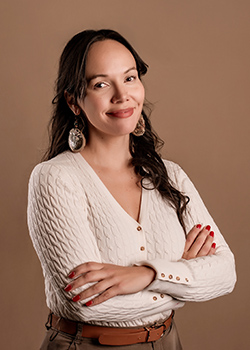
S04 E17 | Released 2025-08-22
Care in the Cells – Improving medical care for those in short term police custody featuring Dr. Michelle Brousson
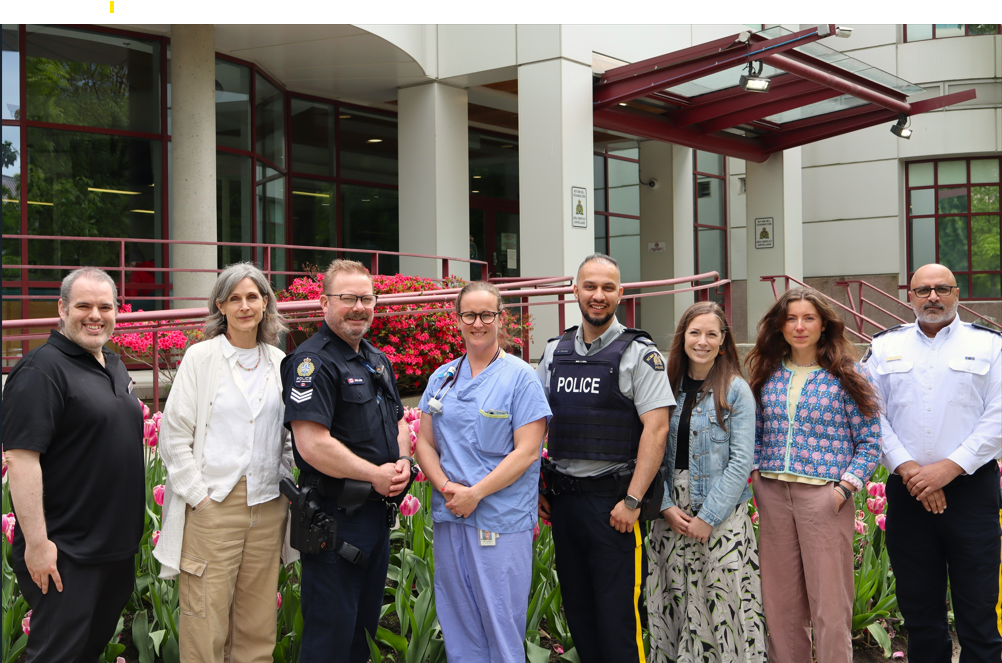
When those in short term police custody need acute medical care, getting them that care presents logistic problems often resulting in time consuming and labor-intensive visits to the local hospital emergency department with police escorts. This week’s guest is Dr. Michelle Brousson, a family physician in North Vancouver, who talks to us about her innovative solution for this complex problem providing the care these patients need without having to leave the police station, providing a win-win solution for everyone involved. During this episode Dr. Brousson provides us with a project masterclass on engaging and listening to stakeholders and delivering education in a meaningful way.
This project was supported through the Shared Care Committee, a sister collaborative committee to the Specialist Services Committee.
To contact someone about spreading this project to your community, access the link below.
Links:
Shared Care Resources
Specialist Services Committee - Spreading Quality Improvement
S04 E16 | Released 2025-08-01
Busting Myths around Physician Leadership featuring Dr. Gurpreet Narang

Taking on your first leadership role as a physician can be a daunting prospect. New physician leaders can feel ill-prepared and ill-equipped when thrust into these positions. But it turns out training and experience in Quality Improvement can help prepare new physician leaders as many of QI skills translate directly into leadership. Our guest today is Dr. Gurpreet Narang, a radiologist based at the University Hospital of Northern British Columbia in Prince George who busts some of the myths surrounding physician leadership and tells us how to avoid that “deer in the headlights” moment commonly encountered by newbie physician leaders in the healthcare arena.
S04 E15 | Released 2025-07-11
The Power of Superconnection featuring Dr. Lawrence Yang
Returning to the podcast is everyone’s favourite physician QI coach and social media maven Dr. Lawrence Yang. He’s a family doc, physician wellness advocate and QI coach but is probably most well well-known for his social media presence and legions of posted selfies with fellow Quality Improvers. In this interview we go deep as Lawrence explains the importance of connection and mutual support within the QI community as well as his own personal motivation behind his networking superpower. We also talk about self-compassion, the dangers of working in silos, generational attitudes to work and identifying as ‘whole people’.
Links:
Kristin Neff and self-compassion
Specialist Services Committee Physician Quality Improvement Alum Hub
S04 E14 | Released 2025-06-20
Violence and Mental Health. Advocating for Mental Health in the North featuring Dr. Barb Kane
It’s a problem which we read and hear about in the media on an all too regular basis. But violence and mental health is not only a problem on our city streets, it’s also an issue in our hospitals. This week’s guest is Northern psychiatrist Dr. Barb Kane. In this episode we talk about why violence and mental health is such a big problem, how it came about and her proposed Northern solution.
Links: Read about and sign the petition at change.org
S04 E13 | Released 2025-05-30
Wraparound care for Alcohol Use Disorder in the Emergency Department featuring Dr. Aron Zuidhof and Dorrie Fasick
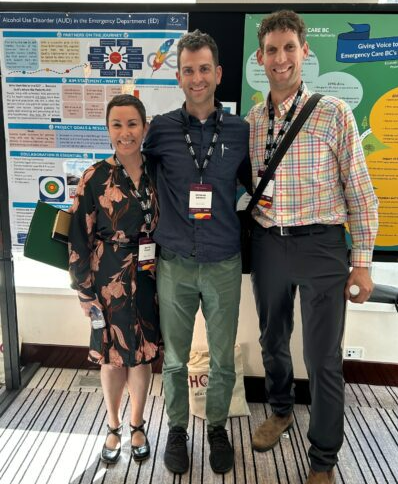
Patients with alcohol use disorder (AUD) are some of the heaviest users of western healthcare resources and particularly emergency departments. Effective treatments for alcohol use disorder have recently become available but only a very small proportion of eligible AUD receive treatment. To talk about their excellent quality improvement work in identifying eligible AUD patients and directing them towards appropriate care from the emergency department, are our two guests today, Dr. Aron Zuidhof, Medical Director for Emergency Services in Interior Health and Dorrie Fasick, Transformational Lead for the Interior Health Emergency Services Network. They talk us through the groundbreaking, wrap-around, care-pathway for AUD they’ve helped develop and at the same time, offer a masterclass in spread and implementation of this initiative to all 28 facilities in their health region.
Links:
S04 E12 | Released 2025-05-09
From Tiny Acorns - The Amazing Origin Story of BC’s Physician Quality Program featuring Dr. Curt Smecher
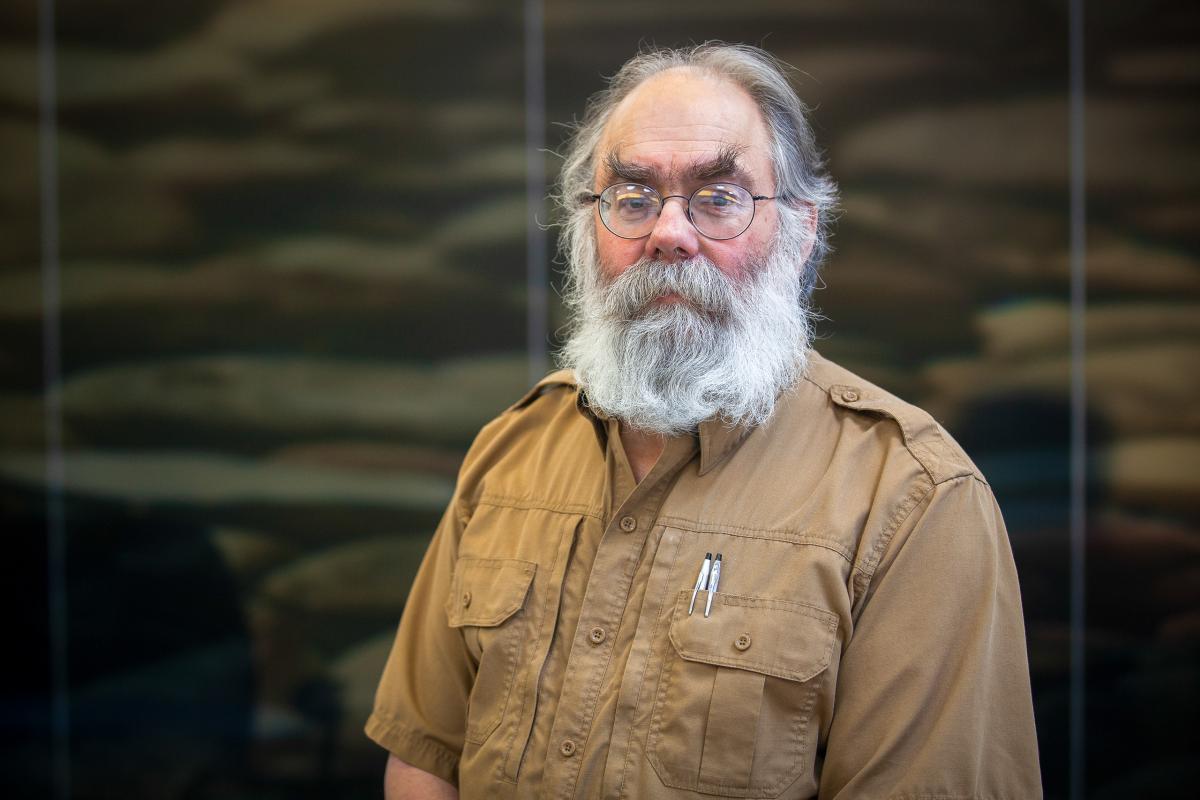
British Columbia’s Physician Quality Improvement (PQI) program celebrates its 8th birthday this year. Since inception, this program has produced amazing improvement work some of which we’ve showcased on this podcast. PQI has also generated a culture shift towards quality amongst the physician community throughout the province. Our special guest today is Dr. Curt Smecher, aka “Papa QI”, the person responsible for PQIs original vision and first training cohort. In this episode, we talk to Curt about PQI’s humble beginnings, the progress and impact of the program to date and its exciting next phase. We also hear how redefining barriers as “speed bumps” and a thoughtful, incremental approach towards its goals, has produced the program’s impressive results. Abbreviations used during this episode:PQI – Physician Quality ImprovementSSC – Specialist Services Committee, a collaborative committee between the Doctors of BC and the British Columbian Ministry of HealthMinistry – BC Ministry of HealthFraser – Fraser Health Authority We love to hear from you, our listeners. Send us your feedback or ask us a question about healthcare quality improvement by emailing us at qualitycomms@northernhealth.ca.
S04 E11 | Released 2025-04-25
The Good and Wise Lead QI Lives. Special “Mic-Swap” Episode with Guest Host Dr. Gurpreet Narang and featuring Dr. Shyr Chui
In this special “mic swap” episode, Lee Cameron and guest co-host Dr. Gurpreet Narang turn the tables on our regular co-host Shyr Chui to ask him about his journey into QI, some of his current projects and memorable highlights from over 20 years of QI work. Amongst other things, we touch on Whole System Quality, building strong QI teams, artificial intelligence and what gets him out of bed every morning.
Links:
IHI White paper on Whole System Quality (Juran’s Quality Trilogy)
Qualitystream North
S04 E10 | Released 2025-03-31
Improving Access to Emergency Care for West Coast Indigenous Communities featuring Dr. Jim Christenson
Today’s guest is a giant and well-respected figure in British Columbian Emergency Medicine. In addition to his many research and quality improvement projects, Dr. Jim Christenson helped create the British Columbia Emergency Medicine Network improving the quality of emergency care across the province. But far from slowing down in retirement, he’s continued pioneering work, turning his attention to the rural, indigenous communities on the west coast of Vancouver Island. In this insightful and moving interview Dr. Christenson talks about the current state of healthcare in these remote communities, the challenges of addressing inequity, his personal motivation for this work and some of the incredible and heartwarming encounters he’s experienced on the way.
Links:
Northern Health PQI
E-mail us!
S04 E09 | Released 2025-03-07
Continuing Medicine at the edge featuring Dr. Ray Markham
In the second part of our interview with Northern Rural Family Physician Dr. Ray Markham, we discuss some of his leadership work supporting rural communities across the province through the Rural Coordination Centre of BC. We discuss how to build a provincial support network and how the constraints of geography and remoteness can be turned to advantage by fueling innovation to improve care “at the edge”.
Links:
Partnership Pentagram
RCCbc
S04 E08 | Released 2025-02-14
Northern BC Canucks visit the IHI Forum featuring Dr. Kalah Blackstock, Dr. Darren Jakubec, Dr. Christin Fabriel-Leclerc, Dr. Ian Schokking and Dr. Omesh Syal
Each year, the Institute of Healthcare Improvement holds its annual forum in December. Over 4 days, between 3 to 4 thousand healthcare quality improvers from across the world join together for a packed program of workshops, QI project reports, improvement science education and keynote lectures from renown speakers. This year, a large contingent of Canadians made the trip including some from Northern British Columbia so we decided to bring these Northern Physicians together for a fun panel discussion about their experiences and what they learned from this year’s forum. This is the recording of that discussion moderated by our regular Qualitycast North host Dr. Shyr Chui. We talk about our key takeaways, Dr. Anthony Fauci’s keynote, power networking and tips for first-time forum attendees.
Links:
Institute for Healthcare Improvement
Dr. Kedar Mate and Dr. Thomas Lee Keynote
S04 E07 | Released 2025-01-24
Medicine at the edge featuring Dr. Ray Markham
If you’re ever tempted to think medicine is practiced the same everywhere in British Columbia, think again. Small rural communities present specific challenges to healthcare delivery due to their size and location, no more so than in the North where we also have long, snowy winters to contend with. That’s not to say that rural care can’t be high quality care. Providing valuable insights into rural family practice is today’s guest Dr. Ray Markham. This interview was so good we split it into two separate episodes. In this first part, Ray talks about his rural, generalist practice in Valemount, how to promote good teamwork and the unsung benefits of working in rural medicine.
Links:
S04 E06 | Released 2025-01-03
A beer a day doesn’t keep the doctor away featuring Dr. Damian Fay
We’re returning to Northeast BC today and the subject might make some listeners squirm a little in their seats. We talk to Dr. Damian Fay, a rural GP and sexual health practitioner based in Hudson’s Hope about his QI work improving his vasectomy service. We talk about the challenges patients experience in accessing care in the North before the conversation takes a lighthearted turn towards the pros and cons of living and working in the north, craft beer and a novel way to get your triathlon track times down.
S04 E05 | Released 2024-12-13
Finding purpose in Quality Improvement featuring Dr. Daisy Dulay.
We’ve showcased a lot of excellent physician-led quality improvement work on this podcast with its corresponding positive impact on patient care. But what is the effect of doing this work on the physicians themselves? Talking about the benefits of doing QI on her day-to-day work, life and career is today’s guest Dr. Daisy Dulay, a cardiologist based in Victoria, BC. In this episode we discuss career paths, purpose, rediscovering joy in our work and “slow medicine”.
Links:
S04 E04 | Released 2024-11-22
What Matters to You? Maternity Nurses in Smither BC featuring Dr. Kate Niethammer
Recruitment and retention of front-line staff is a major challenge across health care systems globally right now, and no more so than in small, rural communities across Northern British Columbia. Today’s guest Dr. Kate Niethammer, a rural GP and obstetrician based in Smithers, BC, explains how she, using a QI approach and asking what mattered to them, was able to reverse nurse shortages and help re-establish full staffing levels in her unit. In this episode we talk about the benefits of living in the North and the universal power of pizza.
Links:
Institute of Healthcare Improvement (IHI) Framework for Improving Joy in Work
S04 E03 | Released 2024-11-01
The Great X-Ray Bake Off – Improving Joy at Work one cookie at a time featuring James Cheesman
With the current challenges faced by healthcare organizations around the world, maintaining staff morale and Joy in Work is a daunting task. The response of one medical imaging department in Northern British Columbia? Competitive baking! This week we interview James Cheesman, a Medical Radiation Technologist at The University Hospital of Northern British Columbia about “The Great X-Ray Bake Off”. With staff bakers competing for the Grandmaster Baker title and trophy, all other staff tasting and scoring the delicious entries and a resulting improvement in departmental morale and camaraderie, it’s a win-win solution for everyone.
If you enjoyed this episode, please subscribe to our channel. If you have a question about healthcare quality improvement or feedback for us at Qualitycast North, email us at qualitycomms@northernhealth.ca and your question could feature on a future episode.
Links:
S04 E02 | Released 2024-10-11
Putting Patients at the Centre featuring Kim Eggers
When improving or making changes to the way organizations provide health care, it often seems the last person consulted is the patient themselves. This seemingly perverse order of priority is a lingering throwback to a more historical and paternalistic model of care. One person looking to change this is today’s guest Kim Eggers, the Patient Partner Advisor for Northern Health’s Physician Quality Improvement program. In this episode we learn about Kim’s background, her motivation for patient advocacy and her vision for the co-creation of health care services.
Resources:
Patient Voices Network of British Columbia
Northern Health Physician Quality Improvement Program
If you enjoyed this episode, please subscribe to our channel. If you have a question about healthcare quality improvement or feedback for us at Qualitycast North, email us at qualitycomms@northernhealth.ca and your question could feature on a future episode.
S04 E01 | Released 2024-09-20
Northern Health’s new CEO - the first 9 months featuring Ciro Panessa
We’re back for our fourth season with our new co-host, Lee Cameron. Our season opener is a cracker featuring special guest Ciro Panessa, the new CEO of Northern Health. In this episode we talk about Ciro’s journey to CEO, his first 9 months, and Northern Health’s priorities over the next 5 years. We also touch on life on the road and why ultimately, he’s grateful.
Resource links:
Northern Health Physician Quality Improvement
“The First 90 Days” book by Michael D. Watkins
We want to hear from you. If you have a question for us about health care quality improvement, email us at qualitycomms@northernhealth.ca and your question could feature on a future episode.
S03 E09 | Released 2024-07-12
Deanna reflects on her favorite 3 episodes from the last 3 seasons of Qualitycast North
It’s our Season 3 finale and a special episode tinged with a little sadness as it’s our Producer and Co-host Deanna’s last episode with QCN. This week I turn the tables on Deanna and ask about her experiences on the show and to take us through her favourite interviews from our first three seasons. Which guests did she choose? You’ll have to listen to find out!
Qualitycast North will return in the Autumn with Season 4 and we’re planning a special QI clinic episode in which we answer listeners’ questions on healthcare quality improvement. Where are you struggling? What advice do you need? We want to hear from you so email us at qualitycomms@northernhealth.ca with your question.
S03 E08 | Released 2024-06-21
Mind Space. Building successful skills for wellbeing across British Columbia with Dr. Fiona Petigara
According to Statistics Canada, Canada is currently experiencing a huge increase in unmet mental health needs. The prevalence of anxiety, depression and social phobia have jumped since the Covid pandemic. How can our health systems cope with this surge in demand for mental health services when the medical community itself is in crisis with physician shortages and burnout commonplace?
Well, there’s good news in British Columbia. A hugely successful, community-based, mental health service based on in-person and virtual group medical visits is spreading throughout the Province. It’s called Mind Space and in this episode we interview one of it’s founders, Dr. Fiona Petigara, about its origins, how it operates and why it’s been so successful.
More information about Mind Space for interested patients and physicians can be found on their website at https://mind-space.ca and the BC Medical Journal at https://bcmj.org/shared-care/cbt-skills-spread-initiative-building-program-support-doctor-and-patient-mental-health
S03 E07 | Released 2024-06-03
Introducing Ketamine Infusion Therapy for Refractory Depression featuring Dr. Darren Jakubec
Depression is a common and debilitating mental health condition affecting millions of people worldwide. Despite the availability of various treatment options, a significant proportion of individuals with depression do not achieve adequate symptom relief. One promising newer treatment is ketamine infusion therapy, but its current availability is relatively limited.
Dr. Darren Jakubec is a GP anesthetist practicing in Smithers, where in addition to supporting surgeries at Bulkley Valley Regional Hospital, he provides pain management, counselling, and runs a dream clinic. Dr. Jakubec saw a unique quality improvement opportunity to use his skills and experience with anesthesia and mental health to bring ketamine infusion therapy to patients experiencing refractory depression in his local area of Northwest BC. The QI project was a true team effort that included patient partners, a patient peer advocate, a psychiatrist, clerical and nursing support. The project achieved positive patient outcomes and received very positive patient feedback. Dr. Jakubec shares the successes and challenges of this innovative approach to supporting mental health, and also discusses the joys of hockey, impromptu dance parties, and the value of paying attention to our dreams.
S03 E06 | Released 2024-05-10
Maintaining Physician Quality and the Provincial College – Featuring Dr. Patrick Rowe, Registrar of the College of Physicians and Surgeons of BC (CPSBC) (Released May 10, 2024)
One of the most important aspects of quality in healthcare is patient safety. We often read or hear media reports of healthcare failures in patient safety, system errors and patients falling between the gaps but there is another piece to patient and public safety which is ensuring that our licensed physicians are safe to practice medicine in the first place. This role usually falls to the Provincial and Territorial Colleges and is a crucial one when it comes to protecting the public. In this episode, we are joined by Dr. Patrick Rowe, who has practiced emergency medicine in Northern BC and provided leadership for emergency medicine and trauma programs in Northern Health for many years before recently taking on a new role as the Registrar of the College of Physicians and Surgeons of BC. Dr. Rowe provides some insights into what the College of Physicians and Surgeons of BC does to protect the safety of patients accessing medical care in BC, the various quality programs it oversees, and the upcoming initiatives the CPSBC is engaged in to maintain and improve the quality of care in BC.
S03 E05 | Released 2024-04-19
Have you tried turning it off and on again? Healthcare IT systems, interoperability, and quality - featuring Dr. Bill Clifford – released April 19, 2024
In this episode we’re talking about a topic which every practicing clinician seems to have an opinion on, whether good or bad. Healthcare IT systems and electronic medical records or ‘EMR’s. Over the last few decades, we’ve seen a massive expansion in the number and reach of these IT systems into every aspect of medicine and across our entire healthcare infrastructure. And although bringing benefits to the care we provide to patients; a new IT system somehow always seems to receive a mixed reception from front line clinical staff. Here today to talk about healthcare IT and EMRs, our guest today is Dr. Bill Clifford. Dr. Clifford is that rare combination of both physician and software developer, previously awarded the Order of BC and the Doug Cochrane Leadership in Quality Award for his leadership work as the (now retired) Chief Medical Information Officer for Northern Health and creator of the no. 1 ranked, Electronic Medical Record in Canada ‘MOIS’ (which stand for medical office information system).
Dr. Clifford shares his experiences with medical information and technology, which interestingly began with a career in forestry and inspiration from forestry growth and yield modelling. We also chat about the future role of emerging technologies such as AI (artificial intelligence) and machine learning in improving healthcare quality.
You can read more about Dr. Clifford’s work and achievements here: Bill Clifford - Health Quality BC
S04 E04 | Released 2024-03-28
Send in the drones! Cutting edge rural medicine- featuring Dr. John Pawlovich and Sandy Lee
Drones, which are basically autonomous flying robots, have a variety of applications from controversial military operations to agriculture, cinematography, and package deliveries. Can this technology support improved healthcare services and healthcare equity in rural locations? Northern British Columbia comprises a vast geographical area the size of France, with a significantly smaller and dispersed population. Road links and municipal infrastructure to many of the smaller communities is limited and the harsh Canadian winters compound challenges to living during 6 months of the year. These challenges especially impact remote Indigenous communities, where accessing simple diagnostics or a pharmacy is greatly limited. These obstacles may seem intractable when it comes to providing healthcare, but rural physicians have responded by exploring the use of drone technology in their pursuit of healthcare equity. In this episode, we hear from Dr. John Pawlovich and project manager Sandy Lee about the UBC Drone Transport Initiative (DTI), an innovative project trialing the use of drone technology to improve geographic health equity in rural Northern BC that has developed in partnership between the Stellat’en First Nation, the Village of Fraser Lake, and the UBC Faculty of Medicine. Our guests share the joys of practicing and supporting medicine in rural and Indigenous communities, the importance and reward of community-led initiatives, and their love for living and working in the beautiful province of BC.
S03 E03 | Released 2024-03-01
While your doctor’s caring for you, who’s caring for your Doctor? - Avoiding physician burn out – featuring Dr. Ingrid Cosio (released March 1 2024)
Today, the practice of modern medicine has changed and is now far more intense, complex and demanding of physicians than ever before. It may not come as a surprise to find, therefore, that physicians are now burning out at an ever increasing rate. The issue is one that often remains hidden or unrecognized but has implications for the resilience and sustainability of our healthcare system.
On todays episode we’re talking about Physician wellness and burnout, and the inspirational work local physicians are engaging in to tackle this growing issue. Dr. Ingrid Cosio is a family physician who has been practicing in Prince George for over 18 years. In addition to being an award-winning family doctor and providing medical leadership to the Northern Gender Clinic, in Summer 2022, she successfully applied on behalf of the PGMSA for the Physician Peer Support Pilot Project, a Physician Health Program initiative. The Prince George Physician Peer Support Program was created as a way to combat burnout and support the mental well-being of other physicians. She also shares her own strategies for self-care such as early morning running and the drawing from stoic philosophy.
S03 E02 | Released 2024-02-09
Why better medicine for Indigenous peoples is better medicine for all. Featuring Dr. Todd Alec and Dr. Sheona Mitchell-Foster (released February 9, 2024)
It is well established that Indigenous peoples accessing the health system are subject to harm, and a lower quality of care. Many healthcare organisations are acknowledging this truth and making commitments to address systemic anti-Indigenous racism and improve cultural safety within the healthcare system. In this episode, we’re hearing from Northern Healths collaborative medical leads for Indigenous Health Drs Todd Alec and Sheona Mitchell-Foster. Dr. Alec is an Indigenous physician originally from Nak'azdli Whut'en, Beaver Clan. He currently practices family medicine with Carrier Sekani Family Services, located on the traditional territories of the Lheidli T’enneh (colonially known as Prince George), and also provides care through the First Nations Health Authority's Virtual Doctor of the Day program.
Dr. Sheona Mitchell-Foster is a settler obstetrician-gynecologist also based on unceded Lheidli T’enneh territory. In addition to providing high risk obstetrical care and full spectrum surgical gynecology, she teaches with the Northern Medical Program and has research interests in low-barrier options of cervical cancer screening for Indigenous women in the north.
Drs Alec and Mitchell-Foster share their experiences and learnings, and discuss how healthcare providers can strive to deliver culturally safe care, to uphold Indigenous people’s rights to self- determined health and wellness. They also share how they live their values, and find joy in sharing time and staying active with their families in Northern BC.
We’d like to note that Indigenous is a general term inclusive of First Nations, Métis, and Inuit. We acknowledge that inclusive terms have the potential to diminish diversity and the unique realities of different peoples. The use of Indigenous in this case is intended as an inclusive
commitment to improving health outcomes for each group.
S03 E01 | Released 2024-01-18
Playing hide and seek with the appendix, featuring Carly Phinney and Karina Hansen (released January 18 2024)
Ultrasound departments everywhere have never been busier and patients with complaints involving all parts of the body visit the department every day. Ultrasound is the first line choice for visualization of the appendix when diagnosing possible appendicitis in children, young adults and pregnant women. When the appendix is not visualized on ultrasound, the patient may be scheduled for a CT which introduces additional radiation and may delay diagnosis and therefore delay treatment. At the University Hospital of Northern BC, finding the appendix was proving to be challenging and the department was visualizing the appendix at rates much lower than expected. Karina Hansen, the former ultrasound supervisor of the UHNBC ultrasound department and Carly Phinney, a Northern Health Quality Improvement Facilitator, teamed up with a local radiologist to tackle the problem, and were able to support the department to improve their appendix visualization and brought the rate up to 76.9%, representing a total increase in visualization of 42.4% from baseline. The change ideas they trialed were so successful, they have been adopted as routine practice by the sonographers and are being spread to other facilities throughout Northern BC.
S02 E10 | Released 2023-06-30
Is it a true penicillin allergy? How penicillin allergy de-labelling is making care safer and more effective – featuring Dr. Tiffany Wong (available June 30, 2023)
Approximately 10% of the population (which translates to around 500,000 people in British Columbia) believes they have a penicillin allergy and are labelled as such in their patient records, but in reality, more that 90% of these patients do not have a true penicillin allergy. These false penicillin allergy labels can have serious consequences to both individual patients and the system; a false allergy label can lead to the use of an alternative antibiotic, which may have increased side effects, increased costs, and can lead to antibiotic resistance. Proactively ‘de-labelling’ patients that have an inaccurate penicillin allergy label can help avoid these risks. Dr. Tiffany Wong is a pediatric allergist based at BC Women’s and Children’s Hospital and is an advocate for choosing the best medications for patients, which involves proving or refuting true drug allergies. Dr. Wong and her team have developed a mobile de-labelling tool to support healthcare providers to do this work in their own settings with their patients. This involves a risk assessment and follow-up processes to accurately diagnose patients deemed as high-risk in a way that is safe, standardized, and evidence based. She has also been working with patient partners to co-design patient resources, so patients and caregivers can be empowered to understand penicillin allergies. These resources are available at https://www.dropthelabel.ca/. This work is also currently being adopted by local physicians and pharmacists at the University Hospital of Northern BC, with support from the Spreading Quality Improvement Initiative, so the benefits of penicillin allergy de-labelling, and associated improvements to patient care, will be realized in the North. Dr. Wong also shares how having a pet and participating in family based activities with her children and husband out in nature helps her to avoid burnout.
Links:
Drop the Label resources for providers, patients, and caregivers: https://www.dropthelabel.ca/
Assessment of multiple-opinion referrals and consults at the BC Children’s Hospital Allergy Clinic
Allergy, Asthma & Clinical Immunology Adam P. Sage and Elliot James and Megan Burke and Edmond S. Chan and Tiffany Wong DOI: 10.1186/s13223-023-00806-2
06/2023
S02 E10 | Released 2023-06-02
Supporting our physicians ongoing passion for quality improvement through the PQI provincial alumni strategy – Featuring Dr. Lawrence Yang and Dr. Hussein Kanji (available June 2, 2023)
In this episode, we are featuring the Physician Quality Improvement (PQI) program’s provincial alumni co-leads, Dr. Lawrence Yang and Dr. Hussein Kanji. Dr. Yang practices in a ‘family-family’ practice alongside his wife and brothers, providing cradle-to-grave care in Surrey, BC. Dr. Kanji is a critical care physician that works primarily in the ICU at Vancouver General Hospital and is passionate about developing the ECMO (extracorporeal membrane oxygenation) programming there. Both Drs Yang and Kanji came to the PQI program though a need to solve their own frustrations with the healthcare system. After graduating from their respective level 3 PQI cohorts (which is equivalent to the Virtual Action Learning, aka ‘VALS’, series offered by Northern Health PQI) and engaging with PQI for several years, they collectively took on the roles of provincial alumni co-leads. All physicians in BC that graduate from the PQI trainings join the provincial alumni network, which provides these physicians who are now experienced and knowledgeable in quality improvement methodologies and tools, to continue to apply their skills and passions to ongoing system improvement, while also engaging in a province-wide community.
As provincial alumni co-leads, Drs Yang and Kanji work together (Kanji describes himself as the ‘yin’ to Lawrence’s ‘Yang’) to support, embody, and connect with all quality improvement enthusiasts across the province, and facilitate ‘cross-pollination’ of ideas to drive positive change. They also share their love of all of the spectacular nature we are blessed to have in BC and share their strategies for preventing burn-out and maintaining mental health while working in such fast paced careers.
S02 E09 | Released 2023-05-12
Safe and supportive opioid prescribing for chronic pain – featuring Dr. Shannon Douglas (released May 12, 2023)
Dr. Shannon Douglas grew up in the Omineca area of Northern BC and has been dog sledding in the Fort St James area since her youth. She now practices medicine in the same region and is the Medical Director for the Lakes Omineca region and loves the diversity of patients she cares for everyday. This region includes Vanderhoof, Fraser Lake, Fort St. James, Burns Lake, Southside and Granisle. Chronic pain is a debilitating, complex condition that effects >60,000 people within the Northern Health region, and many patients use opioids to manage their pain. In 2016-2017 it became apparent that that opioid prescribing for chronic pain was contributing to the opioid overdose public health crisis. There was a need for improved processes for patients to access their medication in a way that was safe, timely, and evidence based. Dr. Douglas initiated an improvement project aimed at redefining the way chronic pain patients were supported in primary care. She worked together with the local interprofessional team to create a new pathway and screening process, that ensured prescription renewals became comprehensive care episodes. Changing the approach required self-reflection and challenging the status quo of 'the way it's always been done’. The project was successful, and patients really enjoyed the new approach, since getting medication can be really challenging for chronic pain patients. Ultimately the patients were able to manage their pain in a safe and supported way, and many were empowered to eventually transition away from opioids.
S02 E08 | Released 2023-04-20
Maintaining quality medical education in the Northern Medical Program – featuring Dr. Paul Winwood (released April 21, 2023)
The Northern Medical Program (NMP) is an inspiring Northern success story based on community action. The NMP is a unique medical undergraduate program that educates future doctors with a focus on rural health. Dr. Paul Winwood is the current Regional Associate Dean of the program, a position he has had for over 10 years. Originally from the United Kingdom, Dr. Winwood settled in Prince George to practice gastroenterology, academic medicine, and provide leadership to the NMP. He loves the community here and especially enjoys spending time outdoors with his family, skiing in the winter and boating in the summer. In this episode Dr. Winwood shares the history of the NMP and describes the various ways the program ensures the quality of education, performance, and learning experiences of the students. We discuss how the profile of medical learners has changed to improve the diversity of physicians entering medical practice, and how the program has influenced physician retention in the North, especially in Indigenous communities.
S02 E07 | Released 2023-03-30
Virtual follow-up for emergency room visits and how to publish your quality improvement work - featuring Dr. Diala El-Zammar and Dr. Raj Johal – released March 30 2023
In this episode, Qualitycast North is leaving the snowy North (yes we still have snow in March) and heading South to showcase some of the excellent Quality Improvement work being done by 2 physicians in the Fraser Valley area; Dr. Diala El-Zammar and Dr. Raj Johal. Dr. El-Zammar and her family came to Surrey, BC, Canada from Lebanon when she was 9. A self-described ‘nerd’, her love of sciences led her to medicine, and she now practices in the Emergency Department at Chilliwack General Hospital. Dr. Johal also grew up in Surrey and was influenced to pursue medicine by his parents who worked in healthcare and the sciences. He is currently a family physician in his hometown of Surrey and is the provincial PQI champion for publishing.
Dr. El-Zammar shares her very successful and innovative quality improvement work in implementing a virtual follow up process for emergency department patients. Integral to quality improvement is sharing the work and results through a variety of media including publishing. Also in today’s episode, Dr. Johal discussing the topic of QI publishing, including the why and how of publishing QI work, and what supports are available to PQI teams, and we’ll hear about Dr. El-Zammar’s experience publishing her QI work in the ‘BMJ Open Quality’ journal. They also share what they enjoy most about living and working in BC.
You can read Dr. El-Zammar and Dr. Johal published article here:
El-Zammar D, Johal R, Eng J, Schultz, T. Implementation of an emergency department virtual follow-up care process in a community-based hospital: a quality improvement initiative. BMJ Open Quality 2022;11:e001782. doi: 10.1136/bmjoq-2021-001782
S02 E06 | Released 2023-03-10
Implementing a collaborative maternity model in Dawson Creek, BC- featuring Dr. Magda Du Plessis (released March 10, 2023)
Dr. Magda Du Plessis is passionate about maternal care, providing the best patient care possible, and quality improvement. She is part of the multidisciplinary team at the Chickadee Maternity Collaborative in Dawson Creek, BC, that includes other physicians, nurses, midwives, pharmacists, and administrative staff. Dr. Du Plessis led the team through a quality improvement project that aimed to have 100% of eligible pregnant patients in the South Peace registered with the Chickadee Maternity Collaborative, to ensure comprehensive, wrap-around care, while also seeking to decrease the rate of caesarean sections and patient safety events. With support from a physician quality improvement coach and a practice support coach, and the use quality improvement tools, the team met their goals; within the first year of operation 100% of eligible patients were registered within the collaborative, the caesarean section rate dropped from 33% to 25%, and there were zero patient safety reports. Dr. Du Plessis credits this success to teamwork, coaching, and the passion of the team. While there were challenges, patients ultimately appreciated the new, team-based, collaborative model of care that includes longer appointment times, and supportive discussions throughout the reproductive health experience. She also shares how her and her family enjoy all of the recreational activities the South Peace has to offer, from fishing, to skiing, to snowmobiling.
S02 E05 | Released 2023-02-16
Addressing implicit biases through reflective practice to improve cultural safety and humility- featuring Dr. Danette Dawkin (released February 17, 2023)
Growing up, Dr. Danette Dawkin didn’t initially see herself pursuing medicine, but after receiving a pamphlet for UBCs rural medicine program, she was inspired to apply, and is now a family physician that has provided services in many rural and Indigenous communities across the North. Implicit biases are unconscious assumptions that can affect how patients are treated based on characteristics such as race, gender, weight, drug-use, and marital status. Dr. Dawkin recently developed a reflective-practice based course to improve cultural safety in healthcare services in the Northeast community of Chetwynd, BC. She brought together an interdisciplinary, dynamic team to learn, discuss and reflect on the internal, implicit biases that we all carry, with the goal of providing care that is rooted in humility and curiosity. Dr. Dawkin shares her experiences with the uncomfortable and difficult work of confronting our own implicit biases, why this approach is so challenging, and how it can ultimately make care safer for everyone.
S02 E04 | Released 2023-01-27
Leadership for healthcare quality - featuring Cathy Ulrich, CEO of Northern Health
Have you ever wondered what the CEO of a large, complex, healthcare organization does, or how leadership and governance supports quality care? In this episode of Qualitycast North we further explore the relationship between quality and healthcare leadership through a conversation with the longest serving Health Authority CEO in recent provincial (BC) history, the current CEO of Northern Health, Cathy Ulrich. Cathy shares her journey through her early career in rural nursing, to rural operational leadership, to strategic leadership. Cathy also discusses her love of gardening, her appreciation for the people within our organization and the people we serve, and outlines her top 4 lessons for successful leadership.
S02 E03 | Released 2023-01-05
Improving cultural safety and humility; the role of medical leadership - featuring Dr. Helene Smith
Dr. Helene Smith is a Family Practitioner based in Quesnel BC, and also the Chair of the Northern Health Medical Advisory Committee, also referred to as NH-MAC. Originally from South Africa, she found her niche in rural family practice, and eventually became more involved in leadership roles.
Since late 2020, provincial healthcare has been making efforts to improve cultural safety for Indigenous patients and healthcare workers. In this episode, we explore the relationship between medical leadership, cultural safety and humility, and quality. Dr. Smith shares her vision for cultural safety and the commitment that medical leaders have made to a cultural safety action plan. She also provides an informative overview of the purpose and structure of the Northern Health Medical Advisory Committee, and how it influences physician quality in Northern Health.
S02 E02 | Released 2022-12-08
Bringing advanced cardiovascular life support recertification training to the Stikine Health Centre - featuring Dr. Breanne Abbott
Dr. Breanne Abbott is a primary care physician at the Stikine Health Centre, which is located on the traditional territory of the Tahltan Nation, in the community of Dease Lake. The Stikine Health Center is one of Northern Health’s most remote clinics and services an area the size of France, with the closest critical care facility nearly 600 kilometers away. Dr. Abbott first visited the area as a medical student and was amazed by the opportunities for recreation, the natural beauty, and the friendly community. After completing medical school and returning to Dease Lake to practice, she now shares the experiences of the area with her husband and son, who all love their time there.
Maintaining clinical skills and competencies is key for providing quality health care, especially in urgent, life-threatening situations in remote locations. When Dr. Abbott became interested in doing a Physician Quality Improvement (PQI) project, she saw an opportunity to focus on supporting the Stikine Health Centers small but mighty team to maintain their life support skills. The aim of her project was to improve the comfort and competence of health care professionals providing cardiac emergency care in the Stikine area by 50%. To meet this goal, she acquired a cardiopulmonary resuscitation (CPR) meter and facilitated the funding and logistics to have trainers travel to Dease Lake to provide on-site basic life support (BLS), advanced cardiac life support (ACLS) and pediatric life support (PALS) recertification training tailored for the local, remote context. Overall, her project was a resounding success! Not only was the project a great opportunity for team building, but the team was also able to see improvements in all measured areas of the project. Dr. Abbott has since put her PQI training to use on further projects, such as remote airway training, and improving availability of blood products. You can learn more about Dr. Abbotts project, and view her storyboard here:
BLS/ACLS/PALS Certification Improvement in Dease Lake | Northern Health PQI Projects (nhpqi.ca)
S02 E01 | Released 2022-11-17
Development of an intubation checklist for Emergency physicians- featuring Dr. Herman Johal
Qualitycast North is thrilled to kick off its second season by featuring Dr. Herman Johal, and his quality improvement work on creating an intubation checklist for the emergency department physicians at the University Hospital of Northern BC (UHNBC), located in Prince George, BC, Canada.
Dr. Johal is an emergency medicine physician practicing at the emergency department at UHNBC. He spent his childhood in Prince George, and after attending medical school, returned full circle to serve the community he grew up in. He credits the amazing healthcare team and collaborative environment of the UHNBC emergency department for creating an enjoyable work environment.
Medical intubation is the process of inserting a breathing tube into a patient's airway to assist breathing in cases of severe illness or trauma. Drawing from the INTUB study (Russotto et al. 2021) and concepts of the surgical safety checklist (Haynes et al. 2009), Dr. Johal saw an opportunity to improve team dynamics, communication, and patient safety during intubations. He developed and implemented a local, standardized intubation checklist and a point-of-care reference card for emergency physicians, which was very well received by the team; 100% of Nurses & MDs surveyed say they would promote the ongoing use of the checklist.
Additional information and storyboard: Development of an Airway Checklist for UHNBC Emergency Physicians | Northern Health PQI Projects (nhpqi.ca)
References:
Russotto V, Myatra SN, Laffey JG, et al. Intubation Practices and Adverse Peri-intubation Events in Critically Ill Patients From 29 Countries. JAMA. 2021;325(12):1164–1172. doi:10.1001/jama.2021.1727
Haynes AB, Weiser TG, Berry WR, Lipsitz SR, Breizat AH, Dellinger EP, Herbosa T, Joseph S, Kibatala PL, Lapitan MC, Merry AF, Moorthy K, Reznick RK, Taylor B, Gawande AA; Safe Surgery Saves Lives Study Group. A surgical safety checklist to reduce morbidity and mortality in a global population. N Engl J Med. 2009 Jan 29;360(5):491-9. doi: 10.1056/NEJMsa0810119. Epub 2009 Jan 14. PMID: 19144931.
S01 E10 | Released 2022-11-14
Bonus: Season 1 Recap and looking ahead to season 2
Dr. Chui and Deanna reflect on the first season of Qualitycast North, discuss their favorite moments and most popular episodes, and provide some insights into some of the exciting quality improvement work that will be featured in season 2.
S01 E01 | Released 2022-05-13
Chasing the sharper image - improving image quality in the MRI department at UHNBC in Prince George, BC. featuring Dr. Shyr Chui
Magnetic resonance imaging (MRI) is a medical imaging technique used to create detailed images of organs and tissues inside the body. During an MRI scan, the patient must lie completely still in a confined space , which can be anxiety inducing, leading to fidgeting and movement. Any movement during the scan will result in lower quality images, which may require a repeat scan which is not only expensive, but is inconvenient for patients and contributes to longer wait times. Dr. Shyr Chui, a radiologist and the usual host of Qualitycast North, moves to the other side of the interview table to tell us about his work improving MRI (magnetic resonance imaging) scan quality and patient experience in the MRI department at the University Hospital of Northern BC (UHNBC). By engaging a team of medical radiology technologists, nurses, and clerical staff in a kaizen event to collaboratively develop improvement ideas, the project was successful in increasing the percentage of high quality scans and providing a better patient experience. Dr. Chui also shares his motivations for starting a podcast, the importance of the right care in the right place at the right time to ensuring quality healthcare, and discloses his dislike of maths. This is our final episode of season 1 – we will back with new episodes in fall 2022.
S01 E09 | Released 2022-04-22
Acing the A1C; improving management of diabetes at the Northern Roots Primary Care Clinic in Smithers, BC - featuring Dr. Kalah Blackstock
Originally from rural Saskatchewan, Dr. Kalah Blackstock now practices medicine and is raising her young family in Smithers BC, a place she describes as a fun place to live and a supportive community for raising kids, where she loves the ‘mild’ winters. Dr. Blackstock and her team at the Northern Roots Primary Care Clinic recently sought to improve care for diabetic patients and prevent downstream complications and empower self management by focusing on increasing physical exams and frequency of the hemoglobin A1C blood test (which measures average blood sugars over several months). Their goal was to ensure 75% of diabetic patients had a physical exam and 3 hemoglobin A1C blood tests annually, and the team worked towards this by creating a standardized diabetic lab requisition, by implementing reminder calls to patients, and by coming together to learn about and prioritize quality improvement as a team.
S01 E08 | Released 2022-04-01
Engineering a win-win for everyone. Reducing hospital re-admissions in the Frail and Elderly population at GR Baker Hospital in Quesnel, BC – featuring Dr. Jon Fine
Dr. Jon Fine began his career as a physician in 1976 stationed in Germany with the British Royal Army Medical Corps. He came to Canada and started a family practice in Quesnel in 1981, also creating a geriatric assessment service in 1996, and has since continued to specialize in the care of elderly patients. Dr. Fine has led multiple quality improvement projects aimed at reducing emergency room visits and hospital admissions of elderly patients. He emphasizes that quality healthcare should reflect the values of the patient and their family, and should provide services to ensure that older people can enjoy their lives in comfort and dignity. He also reflects on the joys of living in Northern BC, such as skiing with his grandkids, fishing, and wildlife viewing from his own backyard. After over 40 years in medicine, Dr. Fine began his well deserved retirement on April 1, 2022.
S01 E07 | Released 2022-03-03
Humility is the key. Incorporating the patient and family perspective in improving healthcare quality – featuring patient advocate Duane Jackson
Duane Jackson is of the Fireweed clan of the Gitanmaax people of Old Hazelton and has lived the majority of his life in Prince Rupert on the Northwest Coast of British Columbia. Duane has been a patient advocate with the Patient Voices Network for over seven years with engagements including cultural safety and humility, at-risk youth, and positive patient partnership. In this episode, Duane describes his advocacy work, the importance of collaboration and shows us his ability to bring people together. Duane shares how embracing humility is the key to engaging in positive change. His vision for quality care is a system that is culturally safe for everyone (on both sides of the gurney), where anyone can walk through the door knowing they will find safety; an environment free of risk, compromise, and vulnerability. He provides advice for both providers and patients interested in incorporating patient lived experience into healthcare improvement, reminding us the door is open – we just have to find the courage to jump in with both feet.
S01 E06 | Released 2022-02-18
Keeping patients with chronic obstructive pulmonary disease (COPD) out of hospital and in the community – featuring Dr. Denise McLeod
Dr. Denise McLeod has always had a passion for caring for others. She worked for 12 years as a nurse before pursuing her dream career as a family physician. In her current practice she cares for patients across life’s spectrum, from newborns to palliative care. To better support her patients with chronic obstructive pulmonary disease (COPD), which is the 4th leading cause of death in Canada, Dr. McLeod started group medical visits, with the goal of improving self management to avoid emergency room visits. These innovations not only improved things for her patients, but also inspired other physicians to adopt COPD group medical visits in their communities.
S01 E05 | Released 2022-01-26
Seeing clearly in the Emergency Department. Raising quality and streamlining visits for patients with eye complaints – featuring Dr. Matthew Wahab
Prince George physician Dr. Matthew Wahab spent several years as a software developer before eventually deciding to pursue a career in medicine. He now loves going to work everyday in the Emergency Department at UHNBC and greatly appreciates the good personal and professional quality of life practicing in the North provides. In this episode Dr. Wahab shares how quality improvement helped him tackle the annoying problem of a lack of proper visual acuity checks being done on patients with eye complaints. Throughout his project, he and his team were able to improve the percent of completed visual acuity checks from 57% to 84%. He also discusses the importance of building a culture that is tolerant of change, and how consistent communication with all stakeholders is key for quality improvement initiatives to be successful.
S01 E04 | Released 2022-01-07
More than just a pretty picture. Getting the right x-rays first time, every time – Featuring Dr. Joe Costa
A passion for hockey and sports eventually led Dr. Joe Costa to a career in orthopaedic surgery. Orthopaedic surgeries always require diagnostic images, such as x-rays, but due to variation in ordering pathways, up to 30% of x-rays ordered are not what the surgeon is looking for. This leads to repeated x-rays which are expensive for the healthcare system, and frustrating for patients. In this episode Dr. Costa discusses how he and his team aimed to improve the proportion of appropriate, complete, and necessary diagnostic images for MSK (musculoskeletal) problems from 70 – 90%. He also shares his ‘earth-shattering’ realization that Quality Improvement science and methodology are instrumental for creating successful change, and reflects on the privilege of working with Northern patients, and how practicing in Northern BC allowed him to achieve the dream of a backyard hockey rink.
Additional Links:
Dr. Joe Costa leads efforts to streamline referral process to musculoskeletal consultation and care
S01 E03 | Released 2021-12-16
Long Distance Medicine; Setting up a rural specialist tele-kidney care service from scratch (featuring Dr. Anurag Singh)
In this episode we interview Dr. Anurag Singh, nephrologist and Medical Lead for the Northern Health Kidney Care program. Dr. Singh discusses the challenges he and his team face providing a regional kidney-care service across the massive geographical area of Northern BC, and how implementing a new telemedicine service improved care for patients in rural communities. In addition to improving access to care in rural communities, the tele-kidney care project achieved success in increasing the uptake of home dialysis to 22% (making it the highest in the province), and resulted in patients being referred for services earlier in their disease progression. Access to tele-kidney care also resulted in savings of an average of $375 in travel expenses and eliminated 839 km of travel per patient ($300,000 and 863,883km total). Dr. Singh also reflects on the professional rewards of practicing medicine in Northern BC, and the personal satisfaction of living in a community so close to nature.
Additional Links:
S01 E02 | Released 2021-11-25
All bodies are good bodies; Overcoming weight bias in primary care. How understanding a hidden problem can lead to higher quality care (featuring Dr. Omowumi Iyaoromi)
In this episode Dr. Shyr Chui talks with Prince George Family Practitioner Dr. Omowumi Iyaoromi about the unrecognized problem of weight bias in healthcare, what it is, how it affects patients and how to reduce its impact on healthcare quality. Dr. Iyaoromi shares the success she had with improving weight bias amongst a team of healthcare professionals as measured by the BOAP (beliefs about obese people) scale, her experiences using the EOSS (Edmonton Obesity Staging System) tool in clinical practice, and describes what she enjoys most about living and practicing in Northern BC.
S01 E01 | Released 2021-11-05
Chronic Obstructive Pulmonary Disease (COPD) Group Medical Visits; leveraging patient education to reduce hospital admissions and emergency room visits
Dr. Denise Jaworsky, an internal medicine specialist practicing in Terrace BC, details her experiences helping patients with Chronic Obstructive Pulmonary Disease better understand and manage their condition by implementing an interprofessional team group visit approach in the community. She also shares how an unlucky day on the ski hill led to a career in medicine, discusses the importance of equity to healthcare quality, and reflects on the importance of community.
Upcoming Episodes
Season 3 Episode 8: Mind Space. Building successful skills for wellbeing across British Columbia with Dr. Fiona Petigara



